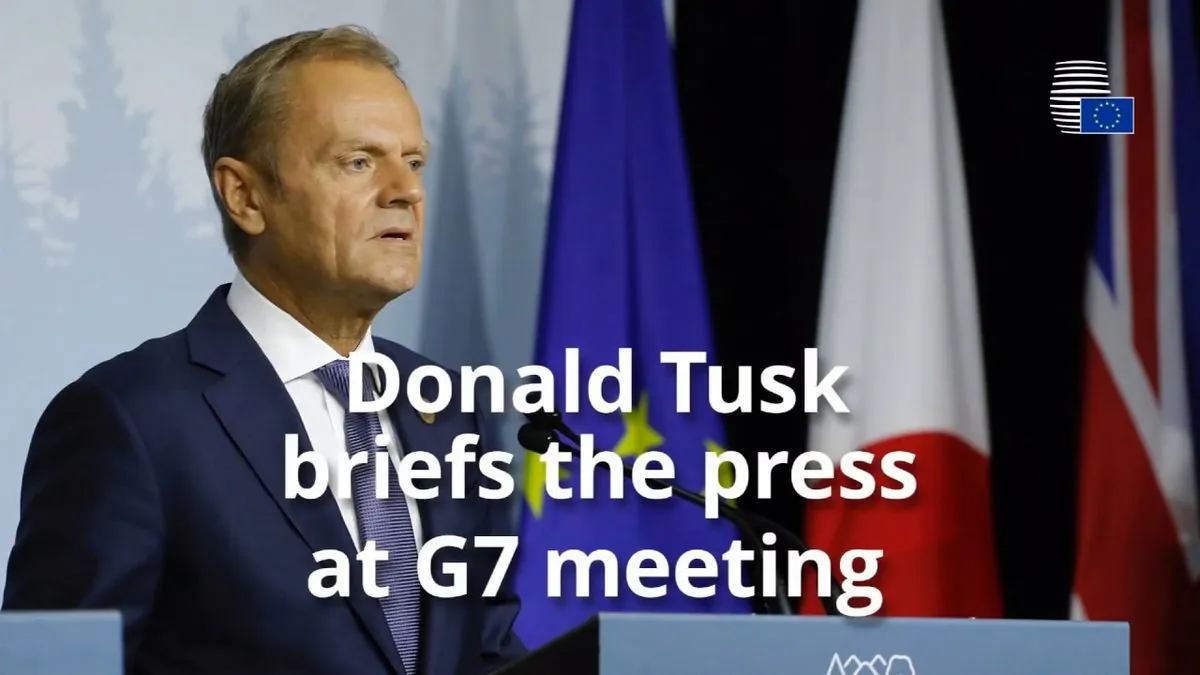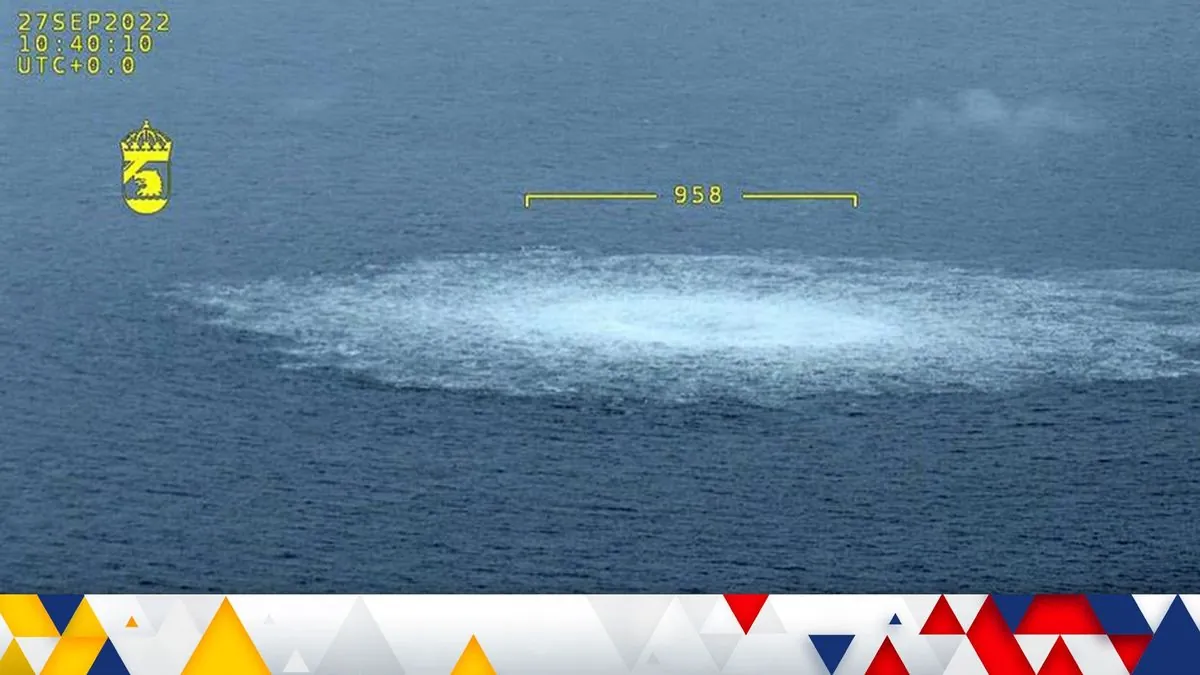Polish PM Tusk Responds to Nord Stream Sabotage Claims
Polish Prime Minister Donald Tusk reacts to reports about Nord Stream pipeline sabotage, as accusations fly between European nations. Polish officials deny involvement, citing Russian disinformation.

In a recent development concerning the 2022 Nord Stream pipeline sabotage, Donald Tusk, Poland's Prime Minister, has responded to renewed questions about the incident. Tusk's comments come in the wake of a Wall Street Journal report suggesting Ukrainian involvement in the pipeline's destruction.
The Nord Stream project, consisting of two pipelines stretching 1,224 kilometers under the Baltic Sea, was designed to transport up to 55 billion cubic meters of gas annually from Russia to Germany. The project, which faced opposition from several countries including Poland, Ukraine, and the Baltic states, cost €7.4 billion for Nord Stream 1 alone.
Tusk addressed the initiators and supporters of Nord Stream 1 and 2, stating:
"The only thing you should do today about it is apologise and keep quiet."
This statement appears to be a response to claims made by August Hanning, a former head of Germany's foreign intelligence agency (BND). Hanning suggested that Poland must have supported the attack on the Nord Stream pipelines and proposed that Germany should consider seeking compensation from Poland and Ukraine.
Krzysztof Gawkowski, Poland's Deputy Prime Minister and Minister of Digital Affairs, strongly refuted these allegations. He characterized the former German intelligence official's comments as "inspired by Moscow" and aimed at destabilizing NATO countries. Gawkowski further asserted that these claims were likely part of Russian disinformation efforts.
The sabotage of the Nord Stream pipelines in September 2022 occurred in international waters but within the exclusive economic zones of Denmark and Sweden. The explosions were so powerful that they were detected by seismologists and caused one of the largest single releases of methane in history.

It's worth noting that Nord Stream 2, completed in the fall of 2021, never became operational due to Russia's full-scale invasion of Ukraine in February 2022. Germany suspended the project on February 22, 2022, just two days before the invasion began, despite it being 98% complete at the time.
The ongoing controversy surrounding the Nord Stream sabotage highlights the complex geopolitical tensions in Europe. As investigations continue, with Sweden, Denmark, and Germany leading separate inquiries, the incident remains a point of contention between nations.
The Nord Stream project, first proposed in 1997, has long been criticized for potentially increasing Europe's energy dependence on Russia. The pipelines, owned by Nord Stream AG (majority-owned by Russian state gas company Gazprom), pass through the Exclusive Economic Zones of Russia, Finland, Sweden, Denmark, and Germany.
As the situation unfolds, Polish authorities have confirmed receiving a warrant for a Ukrainian man wanted by Germany as a suspect in the pipeline attack. However, the individual reportedly left Poland before an arrest could be made.
The Nord Stream sabotage and its aftermath continue to impact European energy politics and international relations, underscoring the ongoing challenges in balancing energy security with geopolitical concerns.


































